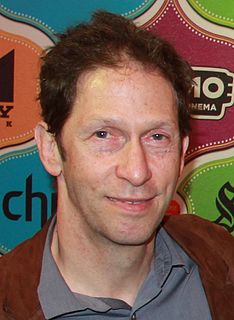A Quote by Kenneth R. Miller
All too often, the word 'religion' has become identified with those promoting a frankly anti-scientific view of nature and of our place in the natural world.
Related Quotes
And when comfort is what we want, one of the most powerful tonics alternative medicine offers is the word 'natural.' This word implies a medicine untroubled by human limitations, contrived wholly by nature or God or perhaps intelligent design. What 'natural' has come to mean to us in the context of medicine is 'pure' and 'safe' and 'benign'. But the use of 'natural' as a synonym for 'good' is almost certainly a product of our profound alienation from the natural world.
Certainly I see the scientific view of the world as incompatible with religion, but that is not what is interesting about it. It is also incompatible with magic, but that also is not worth stressing. What is interesting about the scientific world view is that it is true, inspiring, remarkable and that it unites a whole lot of phenomena under a single heading.
What our view of the effectiveness of religion in history does at once make evident as to its nature is--first, its necessary distinction; second, its necessary supremacy. These characters though external have been so essential to its fruitfulness, as to justify the statement that without them religion is not religion. A merged religion and a negligible or subordinate religion are no religion.
Conservatism, though a necessary element in any stable society, is not a social program; in its paternalistic, nationalistic and power adoring tendencies it is often closer to socialism than true liberalism; and with its traditionalistic, anti-intellectual, and often mystical propensities it will never, except in short periods of disillusionment, appeal to the young and all those others who believe that some changes are desirable if this world is to become a better place.
Science...has become identified with a philosophy known as materialism or scientific naturalism. This philosophy insists that nature is all there is, or at least the only thing about which we can have any knowledge. It follows that nature had to do its own creating, and that the means of creation must have included any role for God.
Secular humanism does not have the essential attributes of a religion: belief in a deity, the wish for some sort of afterlife, sacred dogma or texts, or an absolutist moral creed. Instead, it expresses a philosophical and ethical point of view, and it draws upon the scientific method in formulationg its naturalistic view of the nature.
Man wants to see nature and evolution as separate from human activities. There is a natural world, and there is man. But man also belongs to the natural world. If he is a ferocious predator, that too is part of evolution. If cod and haddock and other species cannot survive because man kills them, something more adaptable will take their place. Nature, the ultimate pragmatist, doggedly searches for something that works. But as the cockroach demonstrates, what works best in nature does not always appeal to us.
Through scientific discovery and technological innovation, we enlist the forces of the natural world to solve many of the uniquely human problems we face - feeding and providing energy to agrowing population, improving human health, taking responsibility for protecting the environment and the global ecosystem, and ensuring our own Nation's security. Scientific discoveries inspire and enrich us, teaching us about the mysteries of life and the nature of the world.
Our parents, our tribesman, our authority figures, clearly expect us to be bad or anti-social or greedy or selfish or dirty or destructive or self-destructive. Our social nature is such that we tend to meet the expectations of our elders. Whenever this reversal took place and our elders stopped expecting us to be social and expected us to be anti-social, just to put it in gross terms, that's when the real fall took place. And we're paying for it dearly.
Nature consists of facts and of regularities, and is in itself neither moral nor immoral. It is we who impose our standards upon nature, and who in this way introduce morals into the natural world, in spite the fact that we are part of this world. We are products of nature, but nature has made us together with our power of altering the world, of foreseeing and of planning for the future, and of making far-reaching decisions for which we are morally responsible. Yet, responsibility, decisions, enter the world of nature only with us




































